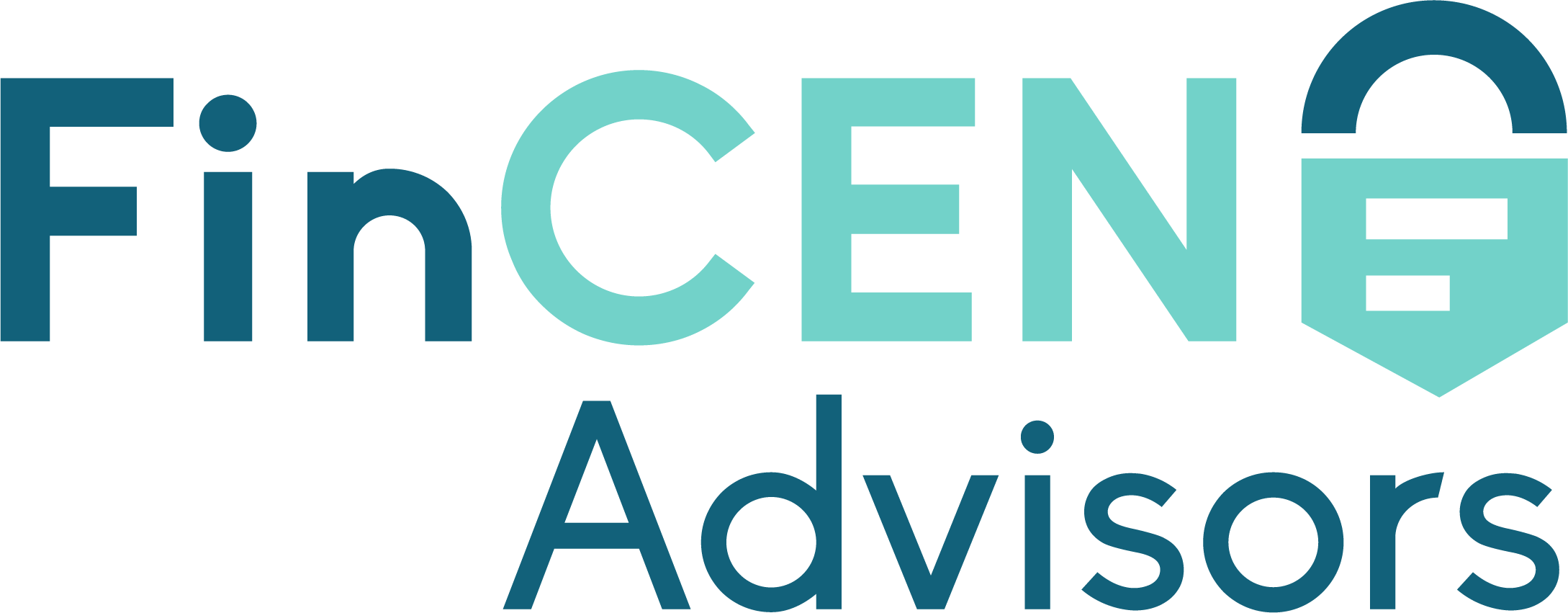El gobierno aprueba cada año muchas leyes para proteger la integridad y la ética de las empresas de todo el país. La mayoría de ellas no tienen requisitos de registro.
Ley de Transparencia Empresarialsin embargo, es una de las excepciones.
La Ley entró en vigor el 1 de enero de 2024. Obliga a las pequeñas empresas a presentar Informe de información sobre la titularidad real o Informe BOI con el Red para la represión de los delitos financieros o FinCEN departamento. Su objetivo es luchar contra las prácticas empresariales ilegales recopilando información sobre los beneficiarios efectivos.
Como propietario de una pequeña empresa, las elevadas sanciones le harán un agujero en el bolsillo si incumple esta ley.
Por lo tanto, comprender la Normativa CTA y su influencia en su negocio es esencial.
Para ayudarle a empezar, le presentamos un completo Guía de la Ley de Transparencia Empresarial para pequeñas empresasque cubre todos los pormenores de la ley.
Siga leyendo.
Ley de Transparencia de las Sociedades Anónimas
La Ley de Transparencia Corporativa para pequeñas empresas entró en vigor el 1 de enero de 2024, y exige a determinadas empresas que presenten un informe de Información sobre Titularidad Beneficiaria o BOI (Beneficial Ownership Information) ante el departamento FinCEN de EE.UU.
Pero, ¿quiénes son los beneficiarios efectivos?
Los beneficiarios efectivos son personas físicas que ejercen un control notable sobre su empresa, directa o indirectamente. Para ser considerado beneficiario efectivo, una persona física debe controlar o poseer al menos 25% de las participaciones de una empresa.
Por otra parte, un informe de información sobre la titularidad real (BOIR) enumera la información sobre las personas que cumplen los criterios de titularidad real.
Además, el informe contiene información sobre la empresa, los contribuyentes y los fundadores o solicitantes de la empresa.
Como la información sobre la titularidad real cambia, los solicitantes son responsables de actualizar el informe siempre que sea necesario.
Plazos para recordar
Otro punto digno de mención es que el La Ley de Transparencia ha fijado plazos para que las organizaciones presenten los informes.
Por ejemplo, si su empresa empezó antes del 1 de enero de 2024, tiene hasta finales de año para presentar el informe. Las nuevas empresas que hayan empezado después del 1 de enero de 2024 tienen 90 días para cumplir los requisitos de la ley. Sin embargo, si inicia un negocio después del 1 de enero de 2025, sólo tendrá 30 días para presentar el informe.
Impacto en las pequeñas empresas
En esencia, la Ley de Transparencia Empresarial pretende sacar a la luz el comportamiento ilícito de las empresas. Aunque obligarse a cumplirla pueda parecer una carga, puede ayudar a su organización a eliminar el riesgo de blanqueo de capitales, evasión fiscal, corrupción, financiación del terrorismo y delitos similares.
Además, puede ayudar a las pequeñas empresas a identificar a las personas que ocultan sus intenciones, acciones e identidades tras sociedades de responsabilidad limitada o sociedades anónimas.
Sin embargo, la Ley no se aplica a todas las empresas.
Por tanto, antes de iniciar el procedimiento de presentación, averigüemos si la ley es aplicable a su empresa.
¿A qué empresas afecta la Ley de Transparencia Empresarial?
Según el resumen de la Ley de Transparencia Corporativa, toda pequeña empresa, family office, corporación, LLC u otra entidad creada en una secretaría de estado u oficina similar mediante la presentación de un documento deberá presentar un Informe BOI. La ley se aplica tanto a las organizaciones que se rigen por la legislación de un Estado como a las tribus indias.
Además de las organizaciones creadas en Estados Unidos (empresas declarantes nacionales), también pueden presentar el informe BOI las organizaciones extranjeras registradas para operar en Estados Unidos (empresas declarantes extranjeras).
¿A qué empresas exime la Ley de Transparencia Empresarial?
La mayoría de las pequeñas empresas de EE.UU. se rigen ahora por la Normativa CTA. Aun así, el CTA exenciones 23 tipos de organizaciones que sólo cumplen algunos criterios de la ley. Se trata principalmente de grandes empresas y organizaciones que operan en sectores muy regulados. Algunas de las organizaciones incluidas en la lista son:
- Empresas públicas
- Grandes empresas operativas
- Entidades inactivas
- Asesores de fondos de capital buitre
- Asesores y sociedades de inversión registrados a nivel federal
- Determinados vehículos de inversión colectiva
- Empresas de contabilidad pública
- Productos y compañías de seguros
- Autoridades gubernamentales
- Entidades exentas de impuestos y entidades que ayudan a las entidades exentas de impuestos
- Bancos y otras empresas financieras
- Cooperativas de crédito
- Empresas de servicios y transferencia de dinero
- Corredores y agentes de valores
- Bolsa de valores y agencias de compensación
- Utilidades del mercado financiero
- Servicios públicos regulados
¿Cuáles son los requisitos que debe cumplir la CTA?
Si su empresa cumple los criterios de la CTA, entonces usted debe reportar la información del beneficiario efectivo. Puede hacerlo también a través de nuestro sitio web por una sencilla tasa de presentación de informes respaldada con asesoramiento.
El plazo puede cambiar si su empresa sufre alteraciones en la propiedad. Un hijo menor de edad que alcanza la mayoría de edad o las ventas a menudo desencadenan estos cambios en las pequeñas empresas. En tales casos, dispondrá de 30 días a partir del día del cambio para presentar el informe.
Directrices de cumplimiento para pequeñas empresas
La LTC trata de identificar y cerrar el resquicio legal que permite a los particulares ocultar su identidad y utilizar a las pequeñas empresas como escudo. Sin embargo, para lograrlo, la ley afectará a casi todas las pequeñas organizaciones que operan en Estados Unidos.
Afortunadamente, los requisitos de la HEIC son bastante sencillos de cumplir. Teniendo en cuenta los plazos, solo tendrá que presentar la información requerida y actualizarla cuando sea necesario.
Veamos la información que debe comunicar y cómo presentarla para cumplir la normativa.
¿Qué tipo de información debe comunicar con arreglo a la LTC?
Como empresa nacional declarante creada antes del 1 de enero de 2024, deberá proporcionar datos sobre la organización y sus beneficiarios efectivos. Sin embargo, si su empresa se creó después de enero de 2024, deberá proporcionar información sobre la organización, los beneficiarios efectivos, así como los solicitantes de la empresa.
¿Qué información tiene que comunicar sobre la empresa?
La nueva ley LLC 2024 requiere que usted informe de toda la información fundamental acerca de su negocio, incluyendo:
- Nombre legal completo de la empresa
- Posibles nombres comerciales o de "empresa que actúa como
- Dirección actual de la sede de la empresa
- Datos de identificación fiscal
- Jurisdicción de formación
¿Qué información debe comunicar sobre el beneficiario efectivo y el solicitante?
Además de la información básica sobre su empresa, la ley le obliga a informar sobre los beneficiarios efectivos. El informe debe incluir
- Nombre legal completo
- Fecha de nacimiento
- Dirección residencial actual completa
- Número de identificación único y jurisdicción emisora de un pasaporte estadounidense, permiso de conducir o documento de identidad estatal o local en vigor.
También puede presentar un pasaporte extranjero en caso de que la persona no sea ciudadana estadounidense.
Ley de Transparencia Empresarial: Cómo presentarla. ¿Cómo presentar el informe BOI?
Puede presentar el Informe sobre la titularidad de los beneficiarios en línea a través del sitio web del FinCEN. Las actualizaciones y correcciones del informe pueden realizarse a través del mismo punto.
¿Qué ocurre si su informe BOI contiene un error?
La Ley de Transparencia concede a las empresas declarantes 30 días naturales a partir del día en que se dan cuenta del error para actualizar el informe. Así que, si comete algún error en el informe, basta con que vuelva a visitar el punto de presentación para rectificarlo.
Sanciones de la Ley de Transparencia Empresarial
Violar la Ley de Transparencia Empresarial puede acarrear cuantiosas sanciones civiles y penales. Y no solo eso, podrías enfrentarte incluso a dos años de cárcel.
Por lo tanto, es esencial que dé sus pasos con cuidado y se asegure de haber trazado la estrategia del proceso de cumplimiento lo más minuciosamente posible.
Para ayudarle, le presentamos un plan paso a paso para lograr el cumplimiento de la normativa CTA.
Paso 1: Determinar si la Ley se aplica a su organización
- Averigüe la estructura de su organización. Determine si se trata de una sociedad anónima, una SRL, una sociedad comanditaria, un fideicomiso empresarial, una sociedad de responsabilidad limitada, una empresa unipersonal o una sociedad general.
- Si su empresa es una sociedad anónima o una LLC, es probable que tenga que presentar el informe BOI. Para salir de dudas, consulte la lista de exenciones.
- Si su empresa no es una SRL o una sociedad anónima pero tampoco pertenece a la lista de exenciones, consulte las directrices del FinCEN relativas a la "empresa declarante" para determinar si tiene que presentar el informe.
Paso 2: Determine si su empresa puede acogerse a una exención
- La Ley de Transparencia Empresarial de 2024 contiene una larga lista de empresas exentas. La mayoría de estas empresas son de tamaño medio o grande, operan en sectores muy regulados o están inactivas.
- "Grandes empresas operativas" se refiere normalmente a organizaciones con más de 20 empleados a tiempo completo en EE.UU. Estas empresas deben tener una presencia física operativa en el país y haber presentado declaraciones de impuestos el año anterior que demuestren más de $5 millones en ventas o ingresos brutos generados a partir de fuentes estadounidenses.
- Las entidades inactivas son las organizaciones que existían antes del 1 de enero de 2020. Estas organizaciones no se dedican a negocios activos, no tienen propietarios extranjeros, no han recibido o enviado fondos superiores a $1.000 en el último año, no tuvieron la transferencia de propiedad en los últimos 12 meses y no poseen activos.
Paso 3: Preparación del informe
- A estas alturas, ya debería saber si la normativa CTA se aplica a su empresa. En caso afirmativo, su primer paso hacia el cumplimiento debe ser averiguar quiénes son los beneficiarios efectivos. Se trata de las personas con al menos 25% de propiedad o control sobre su organización o su participación en la propiedad.
- Una vez que haya identificado a los propietarios beneficiarios, comuníqueles los nuevos requisitos de información para pequeñas empresas y recopile la información necesaria. Informe a sus propietarios beneficiarios de sus opciones para proporcionar la información requerida o solicitar a FinCEN un identificador FinCEN.
- Asegúrese de que los propietarios beneficiarios le informan de los posibles cambios antes de presentar el informe.
- Reúna la información necesaria sobre su empresa y manténgala actualizada.
Paso 4: Aplicar un procedimiento para garantizar la pertinencia de la información comunicada
- Ejecute un procedimiento paso a paso para asegurarse de que está presentando el Información sobre la CTA información correcta. El mismo procedimiento también debería ayudarle a actualizar oportunamente el informe cuando se produzcan cambios.
- Asegúrese de que la información recopilada está segura y organizada con sistemas de seguridad informática y gestión de entidades.
Paso 5: Cuándo y cómo desea presentar el informe BOI inicial
- Decida cuándo desea presentar el informe de información sobre titularidad real. Si su organización comenzó antes del 1 de enero de 2024, tiene que presentar el informe hasta el 1 de enero de 2025.
- Una vez determinada la fecha, puede presentar el informe usted mismo ante el FinCEN o solicitar ayuda a consultores profesionales.
Paso 6: Disfrute de un proceso fluido
- Si tiene alguna entidad inactiva o innecesaria, considere la posibilidad de disolverla para reducir la molestia de presentar el informe BOI.
- Además, modifique sus documentos rectores, como el acuerdo de accionistas, para incluir las obligaciones de los beneficiarios efectivos en relación con la nueva ley para pequeñas empresas 2024.
Riesgos de incumplimiento
Si su organización incumple deliberadamente la obligación de notificar o actualizar la información sobre beneficiarios reales a la FinCEN, puede enfrentarse a una sanción civil de hasta $500 al día. Además de eso, el incumplimiento puede dar lugar a sanciones penales, incluyendo hasta dos años de prisión o una multa de $10.000.
También se aplican sanciones y cargos similares a las organizaciones que presenten información falsa, fraudulenta o incompleta en el informe. Además, si un alto cargo de su empresa o cualquier otra persona no presenta el Informe de Información Beneficiaria o impide deliberadamente que la empresa presente el informe, las autoridades le considerarán responsable. El personal estará sujeto a sanciones civiles y penales.
De cara al futuro: Implicaciones y consideraciones futuras
Aunque la Ley de Transparencia Empresarial para las pequeñas empresas se aplicó hace meses, aún persisten incertidumbres. Algunas pequeñas empresas están estresadas por la carga que supone su cumplimiento, mientras que otras discuten sobre la inconstitucionalidad de la Ley.
Con tantos matices, es natural preguntarse sobre las futuras implicaciones de la Ley y qué retos puede encontrar en su cumplimiento.
Para ayudarle a aclarar la situación, he aquí una lista de consideraciones a tener en cuenta.
1. Desafíos jurídicos
Muchos esperaban desafíos legales en el camino de la implementación de la CTA, pero el zapato finalmente cayó el 1 de marzo de 2024. Un tribunal federal de distrito del Distrito Norte de Alabama concluyó que el Congreso carecía de competencias y recursos para promulgar la CTA.
Los funcionarios añadieron que la Ley vulneraba los derechos tradicionales de los Estados.
La Financial Crimes Enforcement Network se ha comprometido a cumplir la orden del tribunal y ha puesto una pausa en la aplicación de la CTA contra los demandantes en esa acción.
Este resultado ha creado un dilema a muchas pequeñas organizaciones, que se preguntan si deben prepararse para el informe de la Comisión de Investigación.
Lo más importante: Aunque para las organizaciones declarantes es esencial mantenerse al corriente de las actualizaciones de los tribunales, la preparación del informe BOI sigue siendo primordial. Dado que el futuro es incierto, lo mejor es cumplir la normativa y evitar sanciones.
Lo que puede esperar: Teniendo en cuenta la respuesta del FinCEN, es muy posible que recurran la decisión del tribunal. Al mismo tiempo, el estado de Nueva York ha ejecutado su propia ley de transparencia, la New York LLC Transparency Act.
Si la CTA se vuelve inconstitucional, es de esperar que más estados legislen leyes y requisitos individuales de transparencia.
2. Certificaciones a la CTA
A medida que más y más organizaciones revisan y aplican los requisitos de información de las pequeñas empresas, las lagunas de la Ley se hacen más evidentes. Por ejemplo, algunas empresas aún se preguntan qué documentación deben cumplimentar o modificar si pasan de una entidad a otra, como de una sociedad anónima a una SRL.
Lo más importante: FinCEN ha aclarado algunas confusiones publicando varias preguntas frecuentes.
Por lo tanto, si tiene alguna duda sobre la ley, es esencial que se mantenga al día de las publicaciones del departamento. Además, será prudente tomarse su tiempo antes de presentar el informe BOI para obtener más noticias si el plazo lo permite.
Lo que puede esperar: Aunque cabe esperar que la FinCEN siga proporcionando actualizaciones y orientaciones en relación con los términos ambiguos de la Ley, seguirá siendo prudente contratar a abogados o consultores para navegar por la ley.
3. Acceso a la información sobre beneficiarios efectivos
Otro asunto relacionado con la CTA que preocupa a muchos es la seguridad de la información comunicada. Aunque el público en general no tendrá acceso a sus datos privados, algunas autoridades y empresas sí lo tendrán.
Para responder a esta preocupación, la FinCEN ha publicado recientemente una guía en la que se destacan los requisitos que deben cumplir las instituciones financieras para acceder a la información de la BOI.
Principales conclusiones: Según la guía del FinCEN, las instituciones financieras sólo pueden acceder a su información BOI para la diligencia debida con el cliente y otras obligaciones según la Ley de Secreto Bancario. No pueden acceder a su información para actividades comerciales y empresariales en general.
Además, las entidades son responsables de desarrollar medidas de protección sólidas para salvaguardar los datos de la BOI recopilados. Cualquier fallo puede hacer que el FinCEN rechace la solicitud de una entidad para acceder al BOI.
Además, acceder a los informes de la Comisión de Investigación o utilizarlos sin permiso puede acarrear sanciones penales.
Lo que puede esperar: Las instituciones financieras tendrán que esperar hasta que las fuerzas de seguridad hayan completado sus normas y reglamentos de "acceso" en relación con BOI para obtener su información.
Además, cabe esperar cierta armonización entre los requisitos de la Ley de Transparencia Empresarial y la normativa de diligencia debida con respecto al cliente para la protección de datos. Las instituciones financieras también pueden publicar políticas y procedimientos para recopilar de forma segura la información sobre la titularidad de los beneficios.
4. Revisión de los documentos y políticas de la organización
La mayoría de las entidades que cumplen los requisitos para acogerse a la normativa CTA ya han empezado a incluir cláusulas de protección en sus acuerdos y políticas para compensar el riesgo de cumplimiento de la normativa CTA.
Las organizaciones también están creando políticas internas de cumplimiento de la información para mantener la conformidad con la CTA.
Principales conclusiones: Si aún no ha elaborado una estrategia para cumplir la CTA, deberá mantener un debate interno sobre las medidas que puede adoptar para compensar los riesgos cuando proceda.
Lo que puede esperar: Es probable que las complejidades y los términos de la CTA se conviertan en la norma, al igual que las innumerables leyes publicadas antes de la CTA.
Por lo tanto, en lugar de percibirlo como una tarea adicional, puede establecer un sistema de gestión integrado que le ayude a cumplir la CTA junto con otras leyes aplicables.
Agilice el cumplimiento de las CTA con FinCEN Advisors
Esperamos que nuestra guía sobre la Ley de Transparencia Empresarial para pequeñas empresas le haya ayudado a comprender esta normativa fundamental y a simplificar sus requisitos.
Aun así, entendemos que pasar horas navegando por los requisitos de la ley y creando los informes puede parecer una carga. Por eso, en Asesores FinCENSiempre le invitamos a compartir libremente sus preguntas y dudas. Con nuestra completa orientación, actualizaciones normativas en tiempo real y soluciones de presentación, no volverá a incumplir un plazo ni a enfrentarse a las consecuencias del incumplimiento.
Preguntas frecuentes
1. ¿Qué entidades están exentas de la Ley de Transparencia Empresarial?
La normativa de la CTA exime de la Ley a 23 categorías diferentes de empresas. Incluye grandes organizaciones, empresas inactivas y entidades que ya están sujetas a rigurosas normativas estatales y federales.
2. ¿Se aplica la Ley de Transparencia Corporativa a las SRL unipersonales?
Sí, se aplica. La LTC se aplica a la mayoría de las pequeñas empresas, incluidas las sociedades unipersonales y otras sociedades de responsabilidad limitada. Sin embargo, no se aplica a las organizaciones que ofrecen servicios de planificación patrimonial o exención fiscal ni a las empresas que ayudan a organizaciones que prestan servicios de planificación patrimonial.
3. ¿Cuál es la sanción por infringir la Ley de Transparencia Empresarial?
La infracción de la Ley de Transparencia Empresarial puede acarrear sanciones civiles de $500 por cada día de infracción. La persona que infrinja la ley también puede enfrentarse a sanciones penales, incluidas multas de hasta $10.000 y dos años de prisión.
4. ¿Es constitucional la Ley de Transparencia Empresarial?
El 1 de marzo de 2024, uno de los tribunales federales de distrito de Alabama concluyó que la Ley de Transparencia Corporativa es inconstitucional. Sin embargo, es un asunto legal en curso. Por lo tanto, si su empresa no es demandante en el caso ni está relacionada con los miembros de la NSBA, seguirá estando sujeta a la normativa de la CTA.









